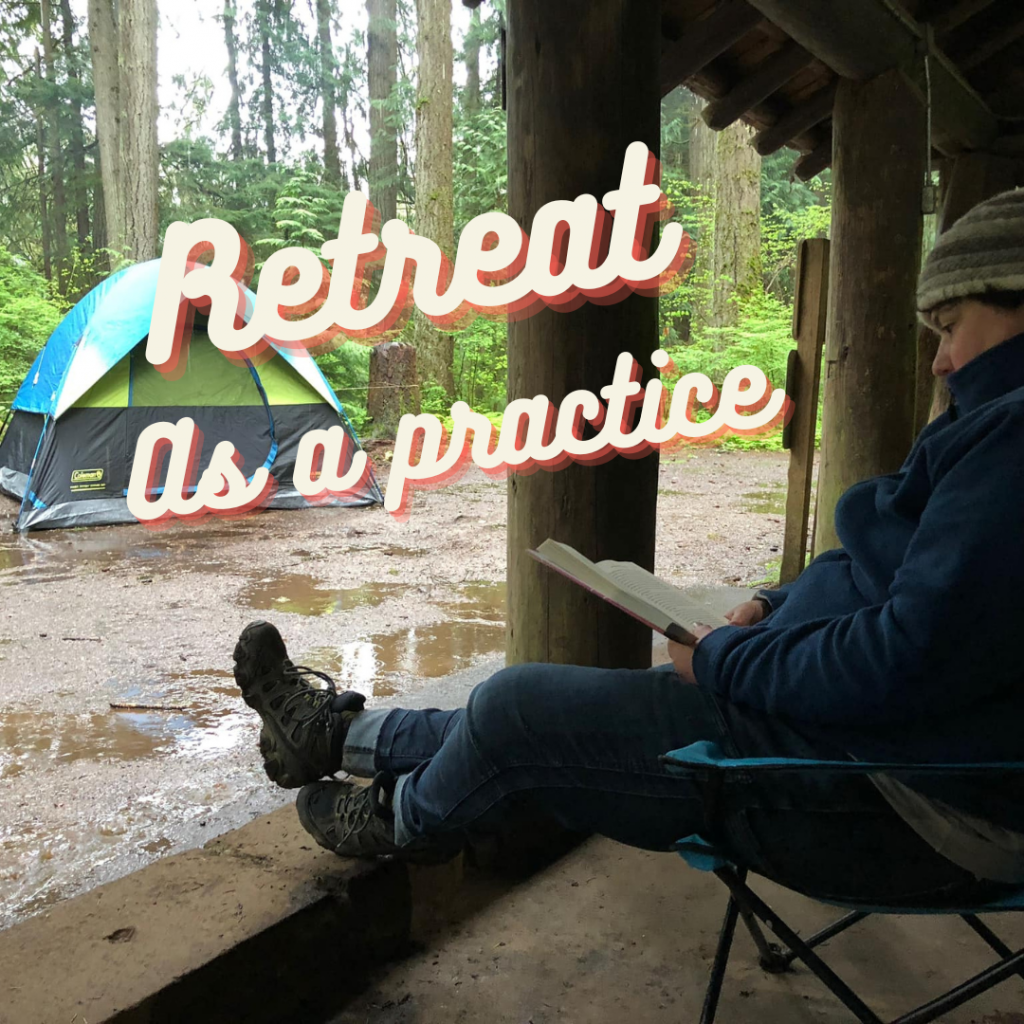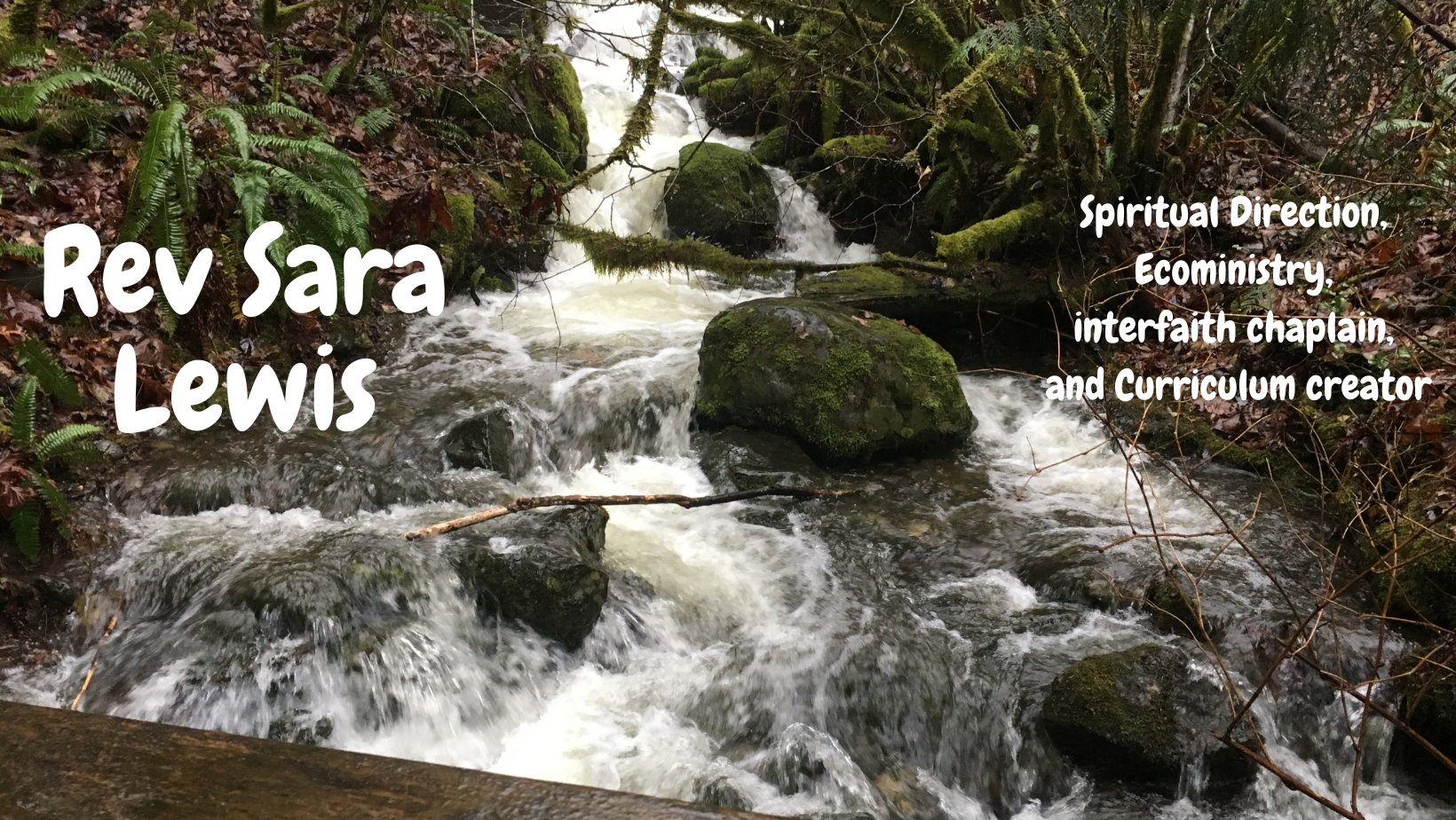
Recently for my day job with a Unitarian Universalist Congregation, I had the joyful duty of taking seven of our youth on their Coming of Age Retreat. We went camping together, and all of the youth observed 24 hours of silent reflection vigil time. This gave them all time to deliberately reflect on the big questions of life and on this time of their lives. Holding space for the youth in this way is one of my favorite things to do.
We all need that time in order to gain deeper perspectives, to find a vision of the bigger picture, and yet most of us don’t structure our lives in ways that give us that time. We are often focused in the weeds, dealing with the details of life, or resting in ways that distract or numb us. Our attention is grabbed, our eyes are glued to the computer or the phone or the TV or we are just nose to the grindstone keeping busy and productive. It’s hard to keep a sense of vision this way.
The spiritual practice of Retreat is similar to that of a Sabbath – taking a time apart from ordinary time. And any of us can do some kind of retreat, whether we have time or resources for something fancy or whether we do something simple. Travel can be one kind of retreat, leaving your daily concerns to go and experience something completely different. Organized retreats at retreat centers can be another lovely way to do a retreat, and there are so many different kinds out there. But these also could be retreats:
- Taking a long walk (alone or with someone else)
- Camping, hiking, getting out into nature in almost any way
- Taking a book and holing up somewhere to read
- Taking a long train ride
- Going to a museum, concert, or festival
- Visiting family or friends
- Going on a service trip
A retreat could be months long, weeks, a weekend, a day, or even just a few hours. There are so many ways to bring this practice into your life. One thing that worked for me when I had little kids was to arrange for childcare or a playdate for my kids, and then to take my books and my journals to a coffee shop. Now in this new season of my life without little kids, my favorite is to go for a hike or to take my book to a park.
If you want to add a retreat to your practice, here are a few tips I think will help:
- Set an intention. Be intentional that you are “on retreat” and be intentional of what you want to focus on and what you will be doing.
- Mark the beginning of your retreat time in some ritual way. Sometimes it is helpful to ritually “lay down” all the things you might otherwise be distracted by. Put your out of office email response on, turn off your phone notifications, write down your worries and then fold them up and put them in an envelope. Let it go, at least for now. Change your clothes, put your briefcase away in a closet.
- Pick your time, place, and companions in such a way as to support your intentions.
- Capture your insights, take-aways, and visions from your time apart in some way. Journal, paint, record yourself talking to yourself on your phone, or any other method that works for you.
- Mark your re-entry into “ordinary” time in some way as you come out of retreat. Step over a threshold, put your everyday clothes back on, turn your phone back on. But maybe don’t be too quick to pick up your burdens again. Let yourself tread lightly back into it all.
You don’t have to just take my word for all of this. Here are some other writers who have shared good ideas about how to create your own retreat:
Personal Retreats: Your Guide to Hitting Reset (theresetritual.com)
Don’t Know What You Want? 10 Simple Steps for Creating a Personal Vision Retreat | HuffPost Life
May we all find the time and perspective that we need for our vision to come into focus
